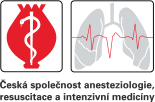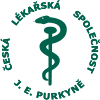Anesteziologie a intenzivní medicína, 2010 (vol. 21), issue 3
Doporučení ČLK č. 1/2010Editorial
Karel Cvachovec
Anest. intenziv. Med. 2010;21(3):127 
Sugammadex (Bridion®) - our first experience with the reversal of moderate rocuronium-induced neuromuscular blockAnaesthesiology - Original Paper
Adamus Milan, Hrabálek Lumír, Koutná Jiřina
Anest. intenziv. Med. 2010;21(3):128-133 
Objective:To study the reversal of moderate rocuronium-induced neuromuscular block as part of balanced general anaesthesia with sugammadex 2 mg/kg. Design:Clinical, observational, retrospective, non-interventional study. Setting:Department of Anaesthesiology, University Hospital. Materials and methods:The reversal of moderate rocuronium-induced neuromuscular block with sugammadex (2 mg/kg) was retrospectively studied. We used TOF stimulation of the ulnar nerve at 15-s intervals and measured the accelerometric response of the adductor pollicis muscle (TOF-Watch® SX). Following spontaneous recovery...
Xenon inhalational anaesthesia in volunteersAnaesthesiology - Original Paper
Török Pavol, Hermely Albert, Sopko Imrich, Čandík Peter, Saladiak Stanislav, Sýkora René, Májek Milan
Anest. intenziv. Med. 2010;21(3):134-139 
Objective:We describe the first experimental administration of xenon inhalational anaesthesia in volunteers. The primary aim was administering a short inhalational xenon anaesthesia and learning the technique and technology of its administration. The secondary aim was observing objective physiological and laboratory parameters and the subjective feelings of the subjects who had undergone the anaesthesia. Setting:Department of Anaesthesia and Intensive Medicine. Design:Clinical experiment (Approval No. 21082009 of the Ethical Committee). Materials and methods:The objective effects...
N-terminal pro-Brain natriuretic peptide (NT-proBNP) in acute brain disease: Elevated serum levels without sodium imbalanceIntensive Care Medicine - Original Paper
Špatenková Věra, Kazda Antonín, Suchomel Petr
Anest. intenziv. Med. 2010;21(3):141-145 
Objective:B-type natriuretic peptide is a member of the peptide family which increases urine and sodium output in the kidneys and causes vasodilatation in the vessels. In acute brain disease it is connected with hyponatraemia and natriuresis, forming the cerebral salt wasting syndrome (CSWS). The aim of this study was to evaluate serum NT-proBNP and its relationship to sodium and water metabolism parameters in patients with acute brain disease in the absence of CSWS. Design:Retrospective study. Setting:Neurological-neurosurgical intensive care unit, Regional Hospital. Material and method:
Article no.5Letter to Editor
Jiří Pokorný
Anest. intenziv. Med. 2010;21(3):145 
Acute kidney injury in critically ill patients - update 2009Intesive Care Medicine - Review Article
Chvojka Jiří, Raděj Jaroslav, Kroužecký Aleš, Karvunidis Thomas, Novák Ivan, Matějovič Martin
Anest. intenziv. Med. 2010;21(3):146-152 
Acute kidney injury (AKI) represents a significant problem in the intensive care units and is associated with high short- and long-term morbidity and mortality, thereby requiring awareness and considerable expertise from intensive care physicians. In this article we summarize and discuss the relevant articles published in the realm of AKI in 2009. Astonishingly, more than 1180 references were published on this issue in the PubMed database during 11 months of the last year. We focused on selected issues whose analysis might contribute to improving the management of critically ill patients with AKI.
Renal replacement therapy (RRT) in critically ill patients - update 2009Intesive Care Medicine - Review Article
Chvojka Jiří, Raděj Jaroslav, Kroužecký Aleš, Karvunidis Thomas, Novák Ivan, Matějovič Martin
Anest. intenziv. Med. 2010;21(3):153-157 
Renal replacement therapy (RRT) remains the cornerstone of management of patients with established acute kidney injury (AKI). Approximately 4% of all critically ill patients in the intensive care units require some sort of RRT treatment. The fundamental management issues remain controversial despite the routine use of RRT, including the timing of RRT initiation/cessation, RRT intensity and the choice of RRT modality. This article is a critical review of selected clinical trials published during 2009 and bringing new advances in the realm of RRT in critically ill patients.
Multiple organ dysfunction syndrome (MODS) - from molecules to the bedsideIntesive Care Medicine - Review Article
Chvojka Jiří, Raděj Jaroslav, Karvunidis Thomas, Kroužecký Aleš, Novák Ivan, Matějovič Martin
Anest. intenziv. Med. 2010;21(3):158-164 
Multiple organ dysfunction syndrome (MODS) is one of the most common causes of death in the intensive care units. This review summarizes recent progress in our understanding of the pathophysiological mechanisms leading to MODS including the concept of mitochondrial dysfunction and apoptosis. The crucial therapeutic measures are early and adequate haemodynamic resuscitation together with elimination of the causative factors. Prevention of iatrogenic insults, potentially worsening MODS, should be an integral part of the therapeutic approach.
Lepirudin (Refludan, CSL Behring GmbH, Marburg SRN)News from CSARIM
Anest. intenziv. Med. 2010;21(3):164 
DOPORUČENÍ PŘEDSTAVENSTVA ČLK č. 1/2010 k postupu při rozhodování o změně léčby intenzivní na léčbu paliativní u pacientů v terminálním stavu, kteří nejsou schopni vyjádřit svou vůliIntensive Care Medicine
Anest. intenziv. Med. 2010;21(3):165-167 
Kalendář nadcházejících akcíNews from CSARIM
Anest. intenziv. Med. 2010;21(3):167 
Zápis z jednání výboru č. 1/2010News from CSIM
Anest. intenziv. Med. 2010;21(3):168 




